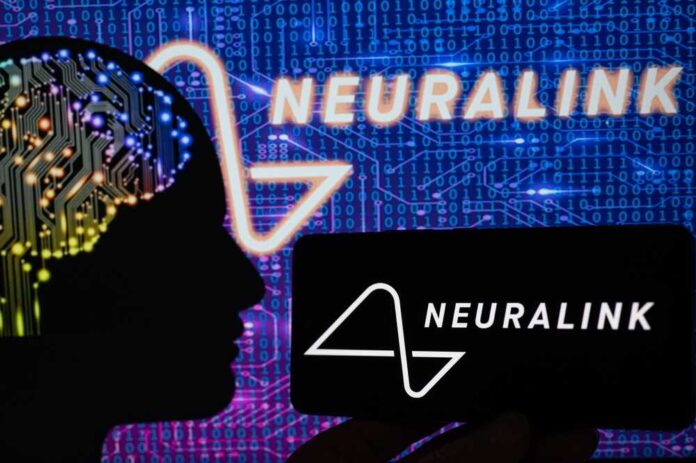
Neuralink, a company co-founded by Elon Musk, has recently released a video showcasing their groundbreaking achievement of implanting a brain chip into a quadriplegic patient. The company’s cutting-edge technology, about the size of a quarter, transmits brain signal data to a dedicated Neuralink app, which decodes the data into various actions. The video highlights the potential for redirecting signals from the brain’s motor cortex to bypass spinal damage, allowing individuals to regain the ability to walk and use their arms as usual.
Neuralink has conducted trials on monkeys, demonstrating the animals’ use of its device to play “Pong” on computers. The company is optimistic that its groundbreaking brain technology will assist individuals with paralysis or who experience difficulties with their vision or hearing. In the future, Musk envisions Neuralink enabling humans to collaborate seamlessly with constantly advancing artificial intelligence (AI).
The company began seeking test subjects after the FDA approved Neuralink for clinical trials on humans. Musk anticipated that the first human patient would soon be equipped with a Neuralink device, which can potentially restore entire body movement.
China has recently released a set of ethical guidelines for companies interested in conducting invasive brain chip research on humans to stay on par with the advancements made by American entrepreneur Elon Musk’s Neuralink. The guidelines require technology firms to obtain written consent from individuals or their guardians before implanting brain-computer interfaces (BCIs) in their heads.
Neuralink has been working on discreet, sealed, tightly powered, wirelessly operated implants that can blend in with the body. Due to the delicate nature of the threads, which cannot be inserted manually, a robot has been developed to insert the implants.
In June 2022, Reuters reported that Neuralink had reached a valuation of approximately $5 billion through privately traded shares. Over the years, Musk has defied skeptics and successfully built businesses that were once destined to fail. However, his acquisition of Twitter, now X, in 2022 for $44bn (£34.6bn) increased criticism of his behavior and raised concerns about spreading himself too thin.














